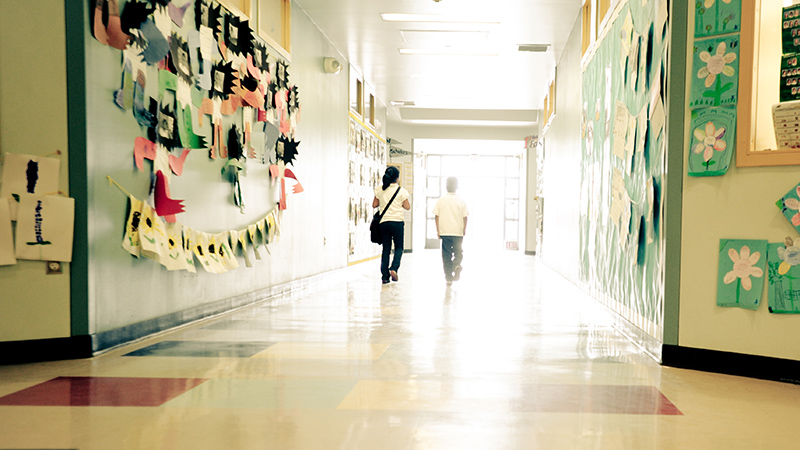
(Photo: Violeta Vaqueiro/CAFwd)
The measures needed to “flatten the curve” of COVID-19 infections and protect public health in California are also upending the valuable system for taking care of the state’s next generations from early childhood to preparing our workforce, also known as cradle-to-career.
Providers of child care and parents in need of those services are left with big questions over the future of California centers and sites that care for almost a million young children. With all schools in California closed until possibly the end of the school year, parents and educators of more than six million students are dealing with how to continue to deliver education to children, including families in need of internet access and more.
Colleges and universities going with online instruction only will leave many students wondering about their educational and career future, and some colleges have even become refuges for students without a safe place to go.
“The coronavirus pandemic has underscored the great importance of creating robust cradle-to-career networks that can continue providing vital services for communities and families, even when it’s not advisable for people to come together in person,” said Pete Weber, founder of California Bridge Academies and co-chair of the California Forward Leadership Council.
In light of the crisis, a California coalition aimed at improving and expanding the state’s cradle-to-career network is signaling it will turn its strengths toward solving educational and child development service bottlenecks created by the pandemic and getting more help to families and communities in need.
The California Cradle-to-Career Collaborative and the Promise Neighborhoods Network, supported by the End Child Poverty Campaign, California Forward, and StriveTogether had already been working together this year on recommendations aimed at accelerating Governor Newsom administration’s cradle-to-career strategy.
This included creating a grant program — a 2020 California Economic Summit priority — that will encourage early adopters to demonstrate the benefits of integrated cradle-to-career approaches that improve development and educational outcomes.
Now, because of the current crisis, the group has sent a message to Governor Gavin Newsom, offering assistance through the organizations’ already built infrastructure, data sharing abilities, and protocols to help those in greatest need during this crisis.
Some of the services the group is providing to residents of their communities include:
- Convening virtual neighborhood and cross-sector partnership meetings
- Connecting families to newly available emergency services
- Delivering continuing education to children
- Creating effective food service delivery for children in need
- Providing child care services to families affected by the pandemic
- Coordinating the work of volunteers, including home visitation
- Informing elected leaders on the needs created by the pandemic
Examples of how this work is being delivered in those communities were part of the group’s message to the Governor:
Mission Promise Neighborhood (MPN), a collaborative of 15 agencies in San Francisco’s Mission District, is reaching out to nearly a thousand San Francisco Unified School District families in its shared database to make sure they have access to the emergency benefits that local, state and federal authorities are putting into effect in response to COVID-19. MPN’s extensive neighborhood network provides residents with a direct line to elected officials to let them know what is needed during this crisis and provides government with an avenue to connect more of its most vulnerable community members to emergency services.
The Fresno Cradle-to-Career Partnership is leading work to coordinate communication throughout the community on available resources including food, childcare, continued learning at all grade levels and volunteer opportunities. The network is also activating a pipeline to move information about service delivery challenges occurring on the ground up to leaders, ensuring that needed policies and practices can be put in place.
In the rural community of Corning, CA the Paskenta Band of Nomlaki Indians, a Promise Neighborhood grantee, is working with local school districts and licensed mental health providers to offer ongoing therapy services to preschool-to-high school students. These services are continuing even with school closures, in part, to help families cope with the COVID-19 outbreak; we believe, this effort is reducing future demands on medical resources.
“When California’s situation stabilizes, this coalition will propose a plan to build and expand the state’s cradle-to-career network, so that every element of the system is aligned and working together, but also to strengthen the local integrated civic infrastructure required to deal with future crises,” said Weber. “In the short term, we’re ready to help families deal with the COVID-19 impacts. In the long-term, we’re ready to help all California Children maximize their potential.”

